As you can see, I have music from 10 bands from the blackened realms in this post. I thought about dividing it into two parts to make it more easily digestible, posting the first 5 as soon as I finished writing about them and then beginning on the second 5. But then I remembered what happened last weekend, when the rest of life intruded and I didn’t finish Part 2 before the typhoon of Monday made landfall. So I forced myself to defer posting this collection until I had completed all of it. Though I guess I could have divided it then. Oh well.
Doesn’t mean you have to consume all of this at once. You can pretend there’s a dividing line after Witchcraft Sadomizer and come back later… just don’t forget, or let the rest of life get in the way.
VERGE
Finland’s Verge are fascinating on many levels. Wholly apart from the evolution of their music into increasingly distinctive shapes, the lyrics of their songs are also engrossing and thought-provoking, though in their unsettling poetry you must be prepared to experience despair and hopelessness in a search for self-becoming that seems perpetually elusive, always challenged and usually defeated by our own wretched flaws and misunderstandings.
How many black metal bands have based an album on the complex theories of the 19th-century Danish philosopher Søren Kierkegaard, as interpreted and simplified through an identification of the three stages existence? That is what Verge have done, at least “loosely”, on their new album The Process of Self-Becoming. “Each song has been written from a particular subjective existential stance and the crisis it inevitably faces.”
Following Kierkegaard’s classification of the stages of existence (which he made clear were not stages in the sense of waypoints on a journey — perhaps “states of existence” would be a better term), the album is divided into three parts: Aesthetic, Moral, and Religious. For this album, there are lyrical contributions by Shoo (of Charnel Winds, who share members with Verge) and Johannes Nefastos, in addition to the writings of the band’s composer and vocalist O.P. For those familiar with the Christian underpinnings of Kierkegaard‘s philosophy, it will soon become apparent why Verge have said the album is “loosely” based on his writings, and as I read the eloquent and mysterious lyrics, they raise as many questions as answers.
Both of the songs that together make up the two-part chapter Moral have been made available for streaming — and the second one, “The Pride In Despair“, was revealed just days ago through a lyric video. That’s the first item in today’s 10-part collection.
In the lyric sheet for the album, O.P. provides a commentary for the song. It’s better understood in the context of all of the song commentaries, read in order, but I want to include it here anyway:
“The inability to fulfill one ́s duty is not actually inability in the sense of impossibility, for the very concept of duty requires that it can be fulfilled. Nothing in man except purely physical properties can be conceived simply caused by nature; it is bad faith trying to escape the fact that one is always responsible for the use of one ́s freedom down to the root. However, if the incentives that oppose moral duties are as much results of imputable human activity as the will to act morally, human will is contradicting itself in its very core. What Kant calls “the radical evil in human nature” is a condition of moral subjectivity, and yet one has always already freely chosen the propensity to evil is fully responsible for this choice. This means the collapse of human reason.”
The imagery in the video (beautifully matched to the music) speaks of isolation, introspection, fragmentation, decay. The music has a depressive cast, and a sense of tension as well as longing, and perhaps a sense of discovery as well. Against a rocking beat, a wrenching solo becomes manifest. The vocals are never less than wrenching. In the final minutes, against the magnetic pulse of the bass, the guitars swirl and shimmer, setting the stage for a magnificent final solo. What an amazing song this is.
The Process of Self-Becoming will be released by I, Voidhanger Records on September 15. Both songs that make up the Moral chapter of the album are below.
Bandcamp:
https://i-voidhangerrecords.bandcamp.com/album/the-process-of-self-becoming
YELLOW EYES
We have a new album on the way from the always arresting Yellow Eyes, the Brooklyn band composed of guitarist Sam Skarstad, guitarist/vocalist Will Skarstad (Ustalost, Sanguine Eagle, Vilkacis), drummer M. Rekevics (Fell Voices, Vanum, Vilkacis, Vorde), and bassist Alex DeMaria (Anicon, Obaku).
The new album, Immersion Trench Reverie, will be released by Gilead Media next month. It includes field recordings made by the brothers Skarstad during a trip to Siberia, including the sounds of flat bells, wild dogs, and a women’s choir.
“Velvet On the Horns“, which premiered last week at Invisible Oranges, gives us the first glimpse of the album. It’s an intense, dramatic piece, a shape-shifting wonder that draws the listener into its spell. Tumultuous and majestic, haunting and perilous, morose and delirious, and constantly shifting gears and tonal colors, the song is a flowering of dreamlike indigo visions. I was left completely wide-eyed by it.
Gilead Media will release Immersion Trench Reverie on October 20 on CD and digitally, with a vinyl edition projected for early December. It will be released on tape via Sibir Records.
Bandcamp:
https://gileadmedia.bandcamp.com/album/immersion-trench-reverie
MALOKARPATAN
Marvels abound on Nordkarpatenland, the new album by Slovakia’s Malokarpatan, and indeed they abound within each song, I had occasion to write about the first advance track in July (“V hustej hore na stračích nohách striga chalupu svoju ukrýva (Within the dense woods, the witch is hiding her hut on magpie legs)”, and now I have another excuse to crow about the album, because a second track has now surfaced, along with the cover art of David Glomba.
Entitled “Nedlho po púlnoci opacha sa doplazila z dzíry (Not long after midnight, the abomination has crawled out of the hole)“, it’s described by the band as “possibly the most unusual piece on the album” and one “heavily influenced by metal in its oldest forms from the 80s-70s”. It features guest keyboard work by their friend Annick of Cauchemar. It was premiered by the excellent Bardo Methodology, accompanied by an interview (here) that I recommend you read for insights into the fascinating music and the album artwork (and a lot of exotic learning as well).
The song is powerfully infectious, a head-nodding rocker with primally compelling riffs and leads that do indeed cast the mind many decades back into the history of metal and hard rock. Yet the vocals are cruel and bestial, and the added keyboards help create an ominous air of mystery and fantasy.
Nordkarpatenland will be released by Invictus Productions on October 31. Be sure to let the player continue running so you can listen to the previously released track as well as this newer one.
Bandcamp:
https://invictusproductions666.bandcamp.com/album/nordkarpatenland
Facebook:
https://www.facebook.com/malokarpatan/
ZIGGURAT
The next song is one of five tracks on Ritual Miasma, the debut recording of an Israeli band named Ziggurat. The title is “דִּבּוּק“.
You feel the presence of a great looming evil as the song unfolds. You hear its voice in the heartless, gargantuan roars and flesh-rending shrieks. You feel the earth shaking beneath its feet through the massive stomping riffs and booming rhythms, and shudder at its capacity for violence in the music’s throes of blast-beat fury and deranged guitar leads. The music soars to heights of terrifying, arcane majesty. It seizes the mind in a vice-like grip and sends shockwaves through the nerves. Hugely compelling stuff here.
Ritual Miasma was mixed and mastered by Stephen Lockhart at Studio Emissary. The cover art was created by White Moth – Boris Haimov. It will be released on tape by Caligari Records on September 30.
Bandcamp:
https://caligarirecords.bandcamp.com/album/ritual-miasma
Facebook:
https://www.facebook.com/zigguratband666/
WITCHCRAFT SADOMIZER
My first reaction to “Blood Kvass Carnage” was to make this note: “Dayum, those are some all-day-long riffs. And I think the vocals have given me colon cancer”.
The track is by a band named Witchcraft Sadomizer, and at this point I have no idea where they are located. It appears on a debut EP named Mouth Fucking Holy Black Holes, which will also be released by Caligari Records at the end of September.
And the riffs are indeed fiendishly good. After a gloomy, dirgelike stomp, the drums accelerate into a battering rush, the vocalist roars his hate from a deep abyss, and within a haze of poisonous guitar sound the riffs pulse, pound, slither, and slash while the bass beats like a leviathan heart. The gloom never recedes, but takes on different inhuman shapes. I’m drawn to this like filings to a magnet.
Bandcamp:
https://caligarirecords.bandcamp.com/album/mouth-fucking-holy-black-holes
Facebook:
https://www.facebook.com/WitchcraftSadomizer/
STRODA
I’m so stupid to have forgotten about Stroda after being smitten by the music almost one year ago. Last October I wrote about three songs among many that this one-man UK project had uploaded to Soundcloud. And after being reminded about Stroda yesterday by starkweather, who turned me onto the project in the first place, I discovered that since my last feature Stroda has uploaded 23 more tracks (!) to Soundcloud, plus a new three-song demo (or at least a three-song playlist) under the title “._._._._.” that appeared last weekend.
The three songs are “Akmuo“, “Innhøsting“, and “Žemai“. Once again I’m blown away by Stroda’s talents. The music is massive, dissonant, sweeping, hallucinatory… deeply unsettling in its atmosphere but absolutely pulse-pounding in its otherworldly energies (not to mention the primal bone-rattling force of the drumwork).
There is a vast and ominous grandeur in the passing of these apparitions before the mind’s eye. They pull you into a vortex, hurling you about in their twisting and turning torrents of sound, pulled into ever deeper and darker abysses — or perhaps instead propelling you into black heavens where fallen angels have become ascendent.
I don’t know if Stroda will ever see this article, but if so I would like to engage in a bout of pathetic begging: Please, please, please, at least put your music on Bandcamp so those of us who have been smitten by it can acquire your tracks for our very own.
Stroda Soundcloud:
https://soundcloud.com/stroda-uk
DEATH ICON
Once I saw that Death Icon included members of Woe, Belus, Mutilation Rites, and Cleanteeth, I wasted little time in checking out their debut demo, To Satan Go the Spoils, which was released on Bandcamp September 8. These first three songs on this demo were recorded by a two-man army, though the band is now a quartet.
Like the music in the last collection by Stroda, there is a sense (to my ears at least) of grandeur and majesty in these songs, though they are also incendiary and thoroughly diabolical. Frenzies of orgiastic violence and wild dervish-like dances explode like wildfires, just as the music also falls into the pace of chilling, ritualistic processionals and the loping of wolves who’ve caught the scent of prey. Spine-shivering dissonance is melded with the old cold grimness of the European second wave and flurries of pure reptilian poison.
The vocals are another strength of these viscerally powerful and richly dynamic songs, summoning the power of death through both their snarling, ravenous, malignant tones and the luciferian lyrics (which they express intelligibly).
This is a very fine first offering, and I hope not the last one from this talented collective.
Bandcamp:
https://deathicon.bandcamp.com/
Facebook:
https://www.facebook.com/deathicon666
DÉPÉRIR
I have Conor O. to thank for my recent discovery of the self-titled debut album of Dépérir from Québec City, Québec. Unlike the preceding music in this collection, it isn’t brand new but was instead released in March of this year. But it’s just too damned good to neglect in favor of my usual focus on recent or forthcoming releases.
The very first song sets the album’s scalpel-sharp hooks in the head. “Esprits Violés” is just flat-out wild, careening ahead at breathtaking speed in a flurry of vicious but virally catchy riffing and rocket-powered drumwork. The shrieked vocals are as thoroughly unhinged as they are brain-blistering.
An album-length serving of such delirium would be a complete rush, but a potentially exhausting one. Wisely, Dépérir mix changes of pace and mood in the songs to come, incorporating touches of punk rhythm, lurching rock, and heavy, stalking, depressive gloom (as well as some acoustic guitar), but they’re never too far away from the nuclear incineration of their black/thrash core. And they also consistently prove their skill at lacing the music with highly infectious but thoroughly dark hooks, regardless of how fast they’re moving.
In a nutshell, this is a very, very impressive debut.
Dépérir is available digitally on Bandcamp and on CD at Studio Sonum.
Bandcamp:
https://deperir.bandcamp.com/releases
Facebook:
https://www.facebook.com/Deperir666/
SATOR MALUS
The preceding two items in this collection have been on the more incinerating end of the scale, but for the last two items I’d like to change course toward more atmospheric corners of the black metal landscape, beginning with the first two tracks from Dark Matters, an album by the Dutch band Sator Malus that was released in late June by Pennsylvania’s Forever Plagued Records.
And to be clear, I’m only mentioning these first two tracks as a way of tempting your interest — not because they’re the only tracks worth hearing. Plus, I’m rapidly running out of time to get this massive post finished before I’m pulled away to other obligations.
The first track is what its title signifies — an “Ominous Overture“. But unlike most instrumental album openers, this one plays a starring role. It’s both somber and beautiful, building from the sounds of rain and thunder and a passage of ambient shimmer and haunting, reverberating notes into a soulful, sorrowing harmony of symphonic strings that tugs hard on the heart-strings.
The second track, “Eerie Elemental Eidos“, flows almost seamlessly from that beginning, re-working some of the opener’s melodic elements through the heavier tones of guitar abrasion and battering percussion, with the vocalist’s tormented and tyrannical growls and yells pushing the music’s intensity all by themselves. But the music itself also becomes increasingly intense, and increasingly desolate and tortured in its mood. The emotional impact surges to a crescendo of agonizing grief mixed with cold fury — and yet the effect is also completely spellbinding.
Just these first two tracks reveal careful and intricate compositional planning, as well as a striking talent for creating and changing mood, and a high level of performance skill as well. Don’t stop with these two songs (I seriously doubt you will), because the rest of this album is just as completely engrossing. Like “Eerie Elemental Eidos”, the remaining tracks are long ones, but they never outstay their welcome.
(Many thanks to Milos for turning me on to this fine album.)
Bandcamp:
https://fpr666.bandcamp.com/album/sator-malus-dark-matters
Facebook:
https://www.facebook.com/Satormalus/
JOYLESS EUPHORIA
I’m indebted again to starkweather for my discovery of the concluding song in this collection. Its name is “Blissful Oblivion” and it’s the first advance track from the self-titled album of a Viennese band named Joyless Euphoria, which will be released by the Berlin label Anthrazit Records.
Both the band’s name and the loneliness of the fog-cloaked urban scene on the album’s cover suit the music of “Blissful Oblivion”. And so does the song’s name. It’s the kind of music that wears its emotions on its sleeve, conveying sensations that are both heart-aching and heart-swelling.
The vocalist’s cauterizing rasps are intense, but the impassioned clean vocals that appear are equally intense. The slow bass-and-guitar duet that follows them are introspective and sad, and the shimmering lead guitar that periodically pierces through the haze of somber sound is searing. The song ends with a surprising solo, one that harkens back to a different time and a very different style, but it somehow doesn’t sound at all out of place.
I’ve fallen hard for this song, and am now thoroughly intrigued to discover what other joyless euphorias this album holds in store.
Bandcamp:
https://anthrazitrecords.bandcamp.com/album/joyless-euphoria
Facebook:
https://www.facebook.com/Joyless-Euphoria-1724618844500988/


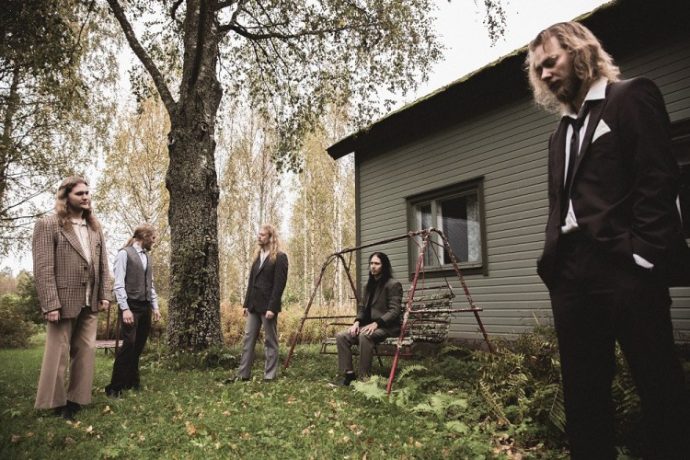
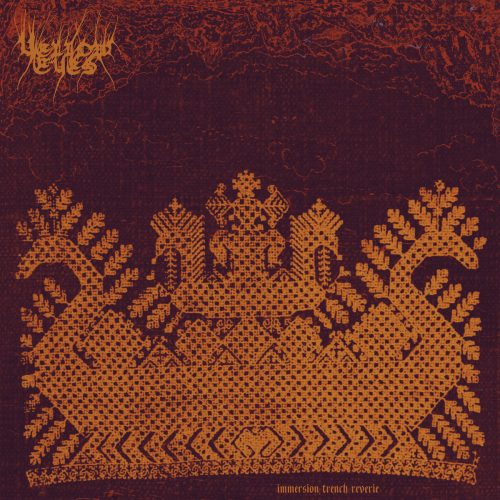
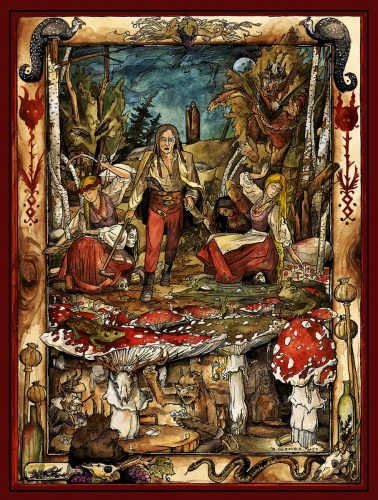
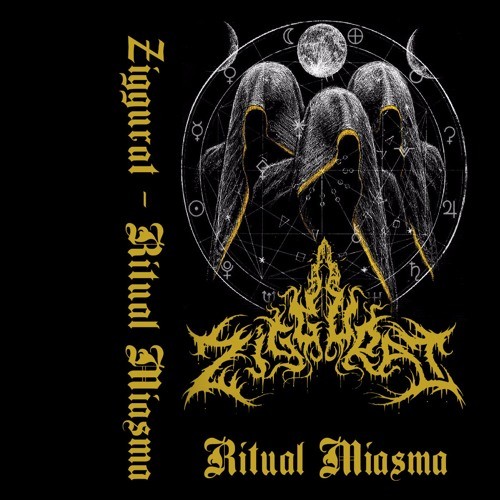
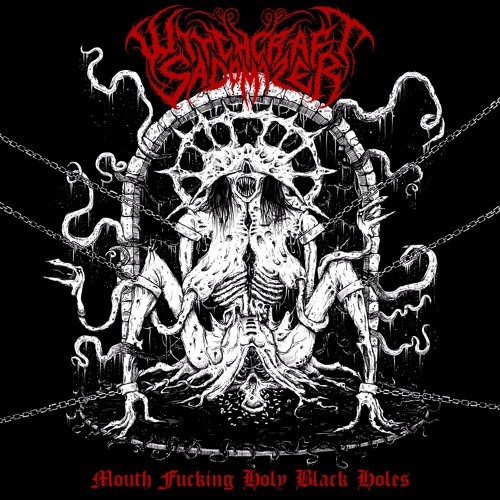

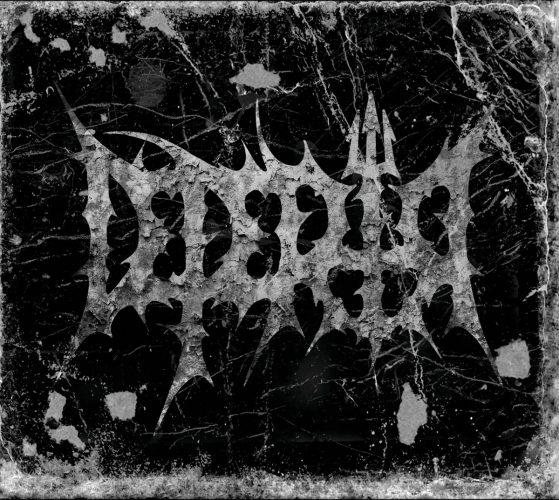

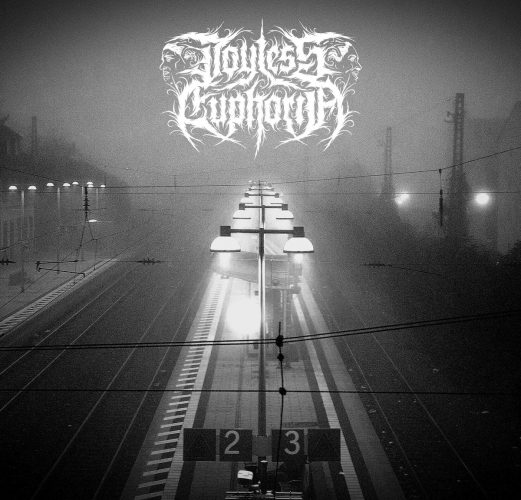
While the well known Yellow Eyes may have the best song here, I’ve been enjoying the newly discovered Satur Malus and Joyless Euphoria. Your posts are the best place to find new black metal. Keep up the good work!
Thank you!
Stroda is absolutely fantastic.
Good to find a fellow supporter. He is indeed. Fingers crossed for some kind of release that won’t require us to be tethered to our computers to enjoy the music.
Well I’m gonna have to make some new pages now anyway as I’ve filled yet another free Soundcloud so I guess is as good a time as any to stop being lazy and turn things into actual bands. Was gonna focus on this stuff – https://plaguecross.bandcamp.com/releases and the Aosothy/BANy things under some other name but coming up with names/lyrics is a bitch. Wanna get some Czraly, post-punky sorta thing going too but definitely need a real drummer and someone that can play bass properly for that.
You are a man of many guises. 🙂 Thanks for the comment, and now I’m off to listen to Plague Cross….